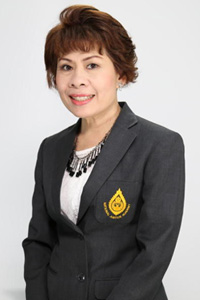There have been a series of bomb attacks at anti-government rally sites, killing four children in Trat and Bangkok.
On Monday, the Silom protest site was the target of shooting and bomb blasts for four consecutive hours. Wednesday night also saw clashes at several rally sites. Such violence has prompted renewed calls for talks from various groups, including the military, academia and the government.
But protest leader Suthep Thaugsuban of the People’s Democratic Reform Committee (PDRC) still rejects the call for talks.
He insists he does not want to talk to caretaker Prime Minister Yingluck Shinawatra while she refuses to take any responsibility for the violence which has left over 20 people dead and over 700 injured. It is not only Mr Suthep who holds pro-government elements responsible for the violence.
After disappearing from public view for over a week, Ms Yingluck wrote on Facebook that she urged talks. She refused to resign “to protect democracy”, stating: “I will do my duty until the last minute."
In effect, her refusal to step down is also a refusal to talk. It came amid the red shirts’ defiant declaration during their meeting on Sunday that they would set up an army of their own to wage war on the anti-government movement.
They issued threats to stage civil war and move the capital from Bangkok to their political strongholds in the North or Northeast.
Mr Suthep said such open declarations from the United Front for Democracy Against Dictatorship (UDD) or the red-shirt movement have invigorated the embattled Ms Yingluck.
When army chief Prayuth Chan-ocha pointed out the people behind the current violence were the same instigators of 2010's street mayhem, all eyes were on the red-shirt movement, which is divided into two main factions.
One faction is led by Jatuporn Prompan and Nattawut Saikuar. Following the miserable failure of the rice-pledging scheme, it has lost ground among farmers who no longer support the government.
The other group consists of hardcore red shirts led by former soldiers and police officers; the "hawks" who are close to the so-called Thaksin regime’s inner core.
They are well-trained in war games and are committed to bringing Thaksin back to power — the goal that led to violence in 2009 and 2010. Some of the group's members have even announced they will launch a civil war in March.
Obviously, this was an attempt to put pressure on the National Anti-Corruption Commission (NACC), which has summoned Ms Yingluck on dereliction of duty charges relating to the rice-pledging scheme.
Working hand-in-glove with Pheu Thai politicians, this group has also planned to petition against the Constitution Court and Vicha Mahakhun of the NACC, who is in charge of Ms Yingluck’s rice-scheme case.
According to Pheu Thai sources, the party’s war room is led by the Shinawatra family members, particularly Yaowapa Wongsawat, Mr Thaksin’s sister.
She reportedly assigned her husband, former prime minister Somchai Wongsawat, to negotiate with Luang Pu Buddha Issara, in the belief the monk would talk to Mr Suthep.
She was also reportedly behind Ms Yingluck’s strategy to appeal for public sympathy by shedding tears in front of the cameras, and asking for "room to stand”.
The first round of talks between Mr Somchai and the monk was not fruitful because the monk posted the details on his Facebook account. Mr Somchai said the next round of talks would be more difficult now as the discussion had entered public scrutiny.
Against all odds, the talks have begun. The government, which initiated the negotiations, is probably well aware of its disadvantage.
Ms Yingluck is under threat of being indicted by the NACC. The Constitution Court has ruled the 2-trillion-baht borrowing bill is unconstitutional. The Pheu Thai Party itself could be dissolved. Ms Yingluck, if proven guilty, also risks imprisonment.
"Ms Yingluck is Mr Thaksin’s dearest sister. He wouldn’t let her face a jail sentence," said a Pheu Thai member. "He’s doing everything now to pressure for talks. If that fails, then it will be used to invite a coup."
It is hoped also the use of violence to pressure for talks will scare protesters away, leaving only a small number of hardcore members and die-hard supporters.
The monk’s Facebook posts reveal the PDRC still doubts the efficacy of negotiations. This is probably why the government has stopped the second round of meetings with the monk.
These conditions could give way to more violence and the possibility of a coup, which many red shirts believe will destroy the protesters' legitimacy. They believe a coup will prove the anti-government reform campaign is a deception, that the PDRC is actually working with the military to stage a coup.
A coup will strengthen Thaksin’s camp, which has won international support for being an elected government. It will also repeat the same mistake of the 2006 coup which ended up giving legitimacy to Thaksin governments and their return to power through his proxies: the late prime minister Samak Sundaravej, former prime minister Somchai Wongsawat, and Ms Yingluck herself.
In the face of impending violence, Gen Prayuth, in his capacity as deputy chief of the Internal Security Operations Command, has ordered provincial governors to restrict mass mobilisation of any crowds intending to come to Bangkok.
The protesters insist they do not want a repeat of the 2006 coup, which left the Thaksin camp politically strong.
Meanwhile, the government is set to prolong its hold on power for as long as possible; the use of force has become an option to increase its bargaining power and lessen the pressure from various court cases.
Who will last the longest in this power struggle? The picture will become clearer soon. Ms Yingluck has 15 days after she hears the NACC charges today in which to make her case for appeal.
After that, the NACC will rule if Ms Yingluck has to stop work as prime minister. The ruling could come in the middle of next month.
Nattaya Chetchotiros is Assistant News Editor, Bangkok Post.
